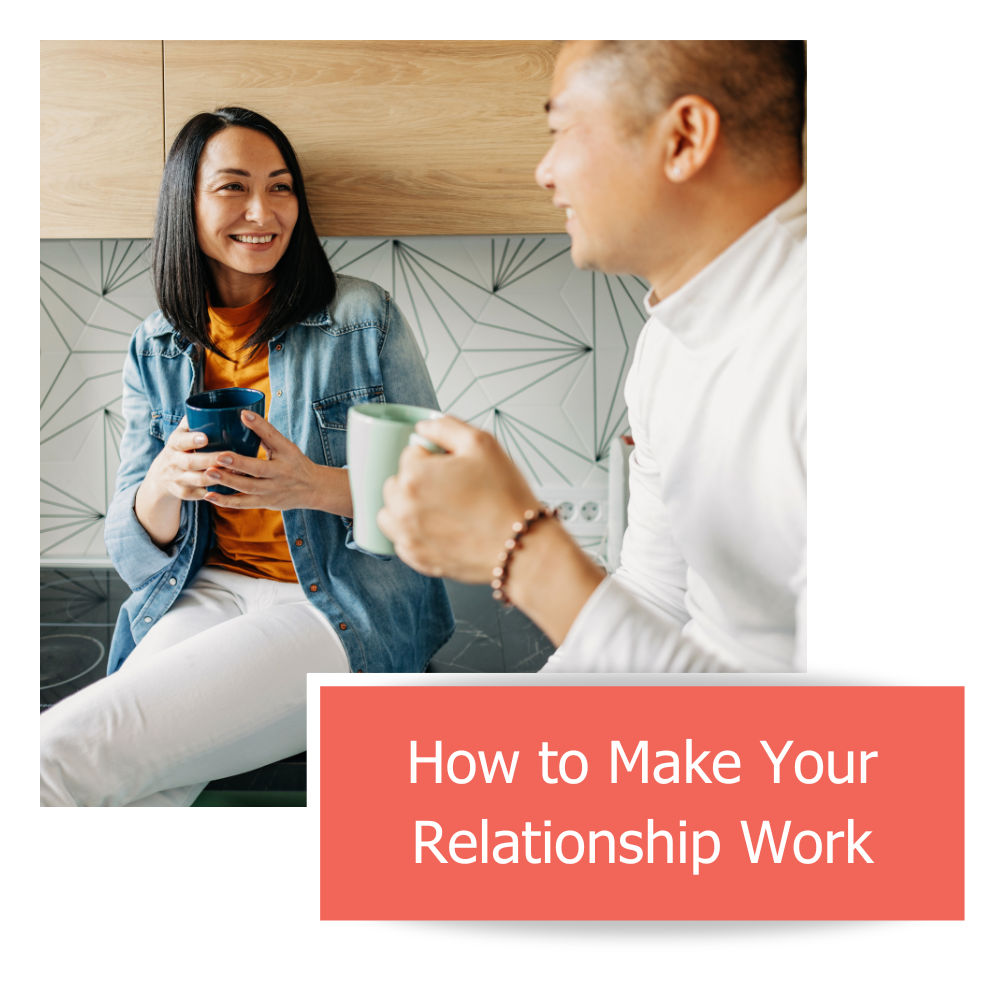According to the research of Daniel Hamermesh and Elena Stancanelli, 30% of American employees work weekends, 26% work evenings, and Americans in general average longer hours than most European countries. How can we balance these hours at work with family and partner time? I hope that these responses below will help you manage such an important issue.
How can I get my husband to look for a job? He has been self-employed for many, many years and only sporadically makes small amounts of money. I’ve been working full time with 3 kids and do all of the housework. He helps with dinners sometimes, and the occasional packing and unpacking of the dishwasher. He likes his flexibility. Meanwhile, I work long hours and travel a lot. I have the option to go part-time, and have done so hoping he would pick up the slack, but he never does. So I’ve gone back full time for the money. We are struggling financially all the time. Help.
I am so glad you wrote in with this question because it is a very common issue for couples. It is extremely frustrating to feel like you are doing the majority of household work, and you paint a picture that many of us can relate to: long hours, travel, and all that accompanies the care of 3 children!
I can also see how committed you are to your family in your attempts to change your work schedule to solve the problem. I am curious about what other things you have tried and what the results have been. Perhaps you have tried this already, but I suggest attempting to talk to him about your concerns directly and clearly in an attempt to work toward compromises that you can both live with.
We know from Dr. Gottman’s research that 93% of the time, conversations end the way that they begin. What this means is that it’s worthwhile to be very thoughtful in deciding how to raise an issue. The Gottmans have created a strategy called softened startup that is a great way to start any conflict conversation. I invite you to try using this tool to start a conversation about your concerns about his employment situation or decision of labor. I encourage you not to pile too many things on at once, as it is human nature to become defensive if someone is giving us a list of things they are unhappy about. For more details on how to start difficult conversations refer to pages 166-170 in The Seven Principles for Making Marriage Work.
I work from home and most of my work involves the Internet – running a website, managing business Facebook pages, answering emails, etc. It is stuff that feels like it needs constant attention. I love what I do and have a hard time putting work away. I also love my two young kids, yet find myself tending to “work” all the time. It’s so tricky! Do you have any advice?
It is great to hear that you love your work so much and also your two young children. Always better to choose between two things you adore vs. two things you resent! Your situation touches upon a very new and interesting dynamic regarding the separation of work from non-work. As our culture is more and more “plugged in,” the boundaries become blurry. A 12 year-old texts a parent during a staff meeting asking where his soccer cleats are, or a mom gets an urgent email from her boss during intermission from a school play. The Internet never sleeps, and even when we turn our own phones on silent, that doesn’t mean others aren’t expecting a rapid response from us.
In this day and age we need to be very deliberate and conscious about how we are spending our time or there is a risk that we will tend to the things that are right in front of us, causing other important things to be forgotten. The good news about this is that the solution doesn’t take immense amounts of time.
Designate time in the evenings or on weekends where you completely unplug from your work (no cell phone or laptop) and focus your attention on your children. Make this time a “ritual of connection” in your relationship that you both can look forward to.
The Gottmans have taught also us about the importance of departures and reunions. I encourage my clients to search their homes for every family member before leaving in the morning and upon returning in the afternoon or evening. It only takes about three to five minutes to give a hearty hug, an authentic smile, and a short discussion about the day. Don’t forget to share a 6-second kiss with your partner. If you’re already doing this, that’s great, keep up the good work! Many times our energy is split between greeting someone and thinking about where we are going or coming from. If we give 100% of our attention then we will feel more connected and calm, which will help us to better tend to the other things we need to take care of.
I am divorced from an alcoholic that lost jobs for a myriad reasons from closing businesses, restructuring, and his own personality issues. Now I have a beautiful relationship with a man who is successful, but I live on pins and needles everyday thinking today is the day that he will be laid off and all will come crashing down. How do I ask him about bad days at work? He never shares much except his disdain of his manager. I am not sure if I should ever interject advice or thoughts, simply because I feel almost a post-traumatic stress from my previous relationship.
Thank you for sharing your story! I am so glad to hear that you are now in a beautiful relationship and I understand your fear that it may be too good to be true. The post-traumatic stress you are describing is a normal reaction to past emotional trauma. In The Science of Trust, Dr. Gottman describes “The Big Trust Question” as “Are you there for me?” Couples ask themselves, “Can I trust you to care more about this relationship than about yourself?” and “Can I trust you to choose me over your friends?” You may be asking yourself, “Can I trust you to be motivated to earn money and keep a stable job to support our family?”
Trust is the result of fulfilled expectations over time. Since you are coming from a history where your expectations were not fulfilled – your husband’s addiction resulted in him not being there for you – it will take time to re-build trust. This will take place by accepting what is right in front of you in the present and slowly being able to see the ways in which the answer to the question, “Is he there for me?” is “Yes, he is!” As you begin to trust your answer (and your partner) it may become easier to begin to ask him about work, or believe that “no news is good news” if he isn’t being particularly chatty about his day.
Thank you again for submitting your questions. As always on #AskGottman, this advice is based on the limited information given. All people with concerns about their relationships are encouraged to consult with a licensed professional to see whether or not couples therapy is recommended. Click here to find a Gottman trained therapist in your area.








